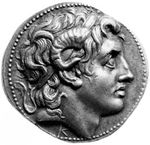Main Page: Difference between revisions
Jump to navigation
Jump to search
Hub Pages:
Abdullah Azzam • Abrogation • Adultery • Aisha • Alcohol • Allah • Amputation • Animals • Antisemitism • Apologists • Atheists • Banu Qurayza • Beauty • Bin Laden • Book Reviews • Cartoons • Children • Conspiracies • Contradictions and Errors • Converts • Corruption of Scripture • Cosmology • Creation • Critics of Islam • Dhimmitude • Dhul-Qarnayn • Drinks • Embryology • Fake Conversions • Farewell Sermon • Fasting • Food • Free Speech • Gabriel • Genies • Genocide • Golden Age • Hadith • Harun Yahya • Health • Heaven • Hell • Help & Advice • Hijab • Hoaxes • Honor Violence • Human Rights • Hygiene • I. A. Ibrahim • Ibn Warraq • Images • Islamic Clerics • Islamic Terms • Jesus • Jihadists • Jizyah • Legends • Library • Links • Lists • Literature • Logical Fallacies • Lying • Mahr • Marriage • Mary • Mathematical Miracles • Michael H. Hart • Milk • Mischief • Misinterpreted Verses • Mistranslated Verses • Moon • Moon Split Miracle • Mosques • Muhammad • Muhammad's Death • Muhammad in Other Scriptures • Muhammad's Revelations • Muhammad's Wives • Music • Muslim Brotherhood • Natural Disasters • Nazism • News • Non-Muslims • Pact of Umar • Paganism • Pareidolia • Persecution • Persecution by Country • Philosophy • Phobia • Polygamy • Pornography • Prayers • Predestination • Public Figures • Punishments • Quizzes & Games • Quotations • Qur'an • Racism • Rape • Rashad Khalifa • Refutations • Reproduction • Revelations • Salaf • Satanic Verses • Sex • Shari'ah • Shi'ites • Slavery • Soft Drinks • Stoning • Tabari • Taxes • Terrorism • Timelines • Top 10 Lists • Tu Quoque • Understanding the Qur'an • Urine • Violence Against Women • Violence by Muhammad • Virgins • Websites • Wife Beating • Witchcraft • Zakir Naik • Zakat • Zamzam
| [unchecked revision] | [unchecked revision] |
mNo edit summary |
mNo edit summary |
||
| Line 1: | Line 1: | ||
<metadesc>2, | <metadesc>2,800+ critical articles on various areas of Islam based on its own sources, the Qur'an, hadith and Islamic scholars.</metadesc> | ||
<!-- Beginning of header section --> | <!-- Beginning of header section --> | ||
{|style="width:100%;margin-top:+.7em;background-color:#fcfcfc;border:1px solid #ccc" | {|style="width:100%;margin-top:+.7em;background-color:#fcfcfc;border:1px solid #ccc" | ||
Revision as of 14:05, 13 January 2015
|
|
|
Abdullah Azzam • Abrogation • Adultery • Aisha • Alcohol • Allah • Amputation • Animals • Antisemitism • Apologists • Atheists • Banu Qurayza • Beauty • Bin Laden • Book Reviews • Cartoons • Children • Conspiracies • Contradictions and Errors • Converts • Corruption of Scripture • Cosmology • Creation • Critics of Islam • Dhimmitude • Dhul-Qarnayn • Drinks • Embryology • Fake Conversions • Farewell Sermon • Fasting • Food • Free Speech • Gabriel • Genies • Genocide • Golden Age • Hadith • Harun Yahya • Health • Heaven • Hell • Help & Advice • Hijab • Hoaxes • Honor Violence • Human Rights • Hygiene • I. A. Ibrahim • Ibn Warraq • Images • Islamic Clerics • Islamic Terms • Jesus • Jihadists • Jizyah • Legends • Library • Links • Lists • Literature • Logical Fallacies • Lying • Mahr • Marriage • Mary • Mathematical Miracles • Michael H. Hart • Milk • Mischief • Misinterpreted Verses • Mistranslated Verses • Moon • Moon Split Miracle • Mosques • Muhammad • Muhammad's Death • Muhammad in Other Scriptures • Muhammad's Revelations • Muhammad's Wives • Music • Muslim Brotherhood • Natural Disasters • Nazism • News • Non-Muslims • Pact of Umar • Paganism • Pareidolia • Persecution • Persecution by Country • Philosophy • Phobia • Polygamy • Pornography • Prayers • Predestination • Public Figures • Punishments • Quizzes & Games • Quotations • Qur'an • Racism • Rape • Rashad Khalifa • Refutations • Reproduction • Revelations • Salaf • Satanic Verses • Sex • Shari'ah • Shi'ites • Slavery • Soft Drinks • Stoning • Tabari • Taxes • Terrorism • Timelines • Top 10 Lists • Tu Quoque • Understanding the Qur'an • Urine • Violence Against Women • Violence by Muhammad • Virgins • Websites • Wife Beating • Witchcraft • Zakir Naik • Zakat • Zamzam
